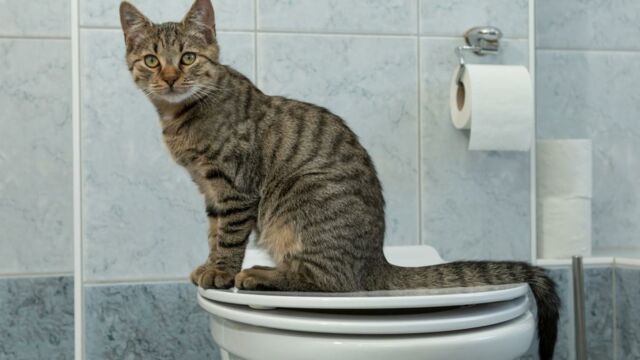How You Need to Avoid Flushing Animal Waste Down the Toilet
How You Need to Avoid Flushing Animal Waste Down the Toilet
Blog Article
Right here underneath you might get a lot of helpful help and advice concerning 4 Reasons Why Dog Poop Cleanup is Important.

When it involves disposing of waste, particularly animal waste, many people typically consider the practical choice of flushing it down the toilet. Nevertheless, this relatively very easy service can have major repercussions for the environment and public health. In this write-up, we'll explore why flushing animal waste down the toilet is a bad idea and offer alternate techniques for appropriate disposal.
Introduction
Proper waste disposal is essential for maintaining environmental sustainability and public health. While it might appear harmless to purge animal waste down the bathroom, it can result in various concerns, both for the atmosphere and human well-being.
Threats of flushing pet waste
Environmental influence
Purging animal waste introduces dangerous bacteria and virus into rivers, which can adversely affect marine communities. These microorganisms can infect water sources and damage aquatic life, disrupting delicate environments.
Public health worries
Pet waste has harmful bacteria such as E. coli and Salmonella, which can pose major health risks to people. Flushing animal waste down the toilet can contaminate water products, leading to the spread of conditions and infections.
Alternatives to flushing
As opposed to purging animal waste down the toilet, there are numerous different disposal approaches that are much more environmentally friendly and sanitary.
Composting
Composting pet waste is an environment-friendly method to deal with it. By composting, raw material is broken down right into nutrient-rich dirt, which can be made use of to fertilize gardens and plants.
Garbage dump disposal
Taking care of pet waste in a garbage dump is another alternative. While not as eco-friendly as composting, it is a safer choice to flushing, as it avoids the contamination of water resources.
Family pet garbage disposal systems
There are specialized family pet waste disposal systems offered that safely check here and hygienically throw away animal waste. These systems commonly make use of enzymes to break down waste and eliminate smells.
Actions to appropriate pet garbage disposal
To guarantee appropriate disposal of pet waste, adhere to these actions:
Scooping and nabbing waste
Consistently scoop and bag pet waste using biodegradable bags. This protects against waste from contaminating the environment.
Using designated waste containers
Dispose of bagged pet waste in marked waste containers, such as compost bins or landfill bins. Avoid flushing it down the commode whatsoever prices.
Cleansing litter boxes and pet locations on a regular basis
Frequently clean can and animal locations to prevent the accumulation of waste and bacteria. Usage pet-safe cleaning items to maintain hygiene.
Advantages of appropriate disposal approaches
Adopting correct disposal methods for pet waste provides numerous benefits:
Decreased environmental pollution
Correct disposal methods lower the risk of environmental pollution, securing waterways and environments from contamination
Decreased risk of water contamination.
By avoiding flushing animal waste down the commode, the danger of water contamination is considerably lowered, guarding public health.
Improved cleanliness and health
Correct disposal approaches advertise far better hygiene and health, developing a more secure setting for both people and pets.
Final thought
In conclusion, flushing pet waste down the commode is unsafe to the environment and public health. By taking on different disposal techniques and following correct waste administration practices, we can decrease the unfavorable impact of pet waste and contribute to a cleaner, much healthier world.
Why You Should Never Flush Cat Poop Down the Toilet
A rose by any other name might smell as sweet, but not all poop is created equal. Toilets, and our sewage systems, are designed for human excrement, not animal waste. It might seem like it couldn’t hurt to toss cat feces into the loo, but it’s not a good idea to flush cat poop in the toilet.
First and foremost, assuming your cat uses a litter box, any waste is going to have litter on it. And even the smallest amount of litter can wreak havoc on plumbing.
Over time, small amounts build up, filling up your septic system. Most litter sold today is clumping; it is made from a type of clay that hardens when it gets wet. Ever tried to scrape old clumps from the bottom of a litter box? You know just how cement-hard it can get!
Now imagine just a small clump of that stuck in your pipes. A simple de-clogger like Drano isn’t going to cut it. And that means it’s going to cost you big time to fix it.
For an amusing, graphic tale of what happens when you flush too much litter down the toilet all at once, take a few minutes to read Gene Weingarten’s 2017 Washington Post column “So that’s what happens when you flush cat litter down the toilet.”
Parasitic Contamination
Believe it or not, your healthy kitty may be harboring a nasty parasite. Only cats excrete Toxoplasma in their feces. Yet it rarely causes serious health issues in the cats that are infected. Most people will be fine too if infected. Only pregnant women and people with compromised immune systems are at risk. (If you’ve ever heard how women who are expecting are excused from litter cleaning duty, Toxoplasma is why.)
But other animals may have a problem if infected with the parasite. And human water treatment systems aren’t designed to handle it. As a result, the systems don’t remove the parasite before discharging wastewater into local waterways. Fish, shellfish, and other marine life — otters in particular — are susceptible to toxoplasma. If exposed, most will end up with brain damage and many will die.
Depending on the species of fish, they may end up on someone’s fish hook and, ultimately on someone’s dinner plate. If that someone has a chronic illness, they’re at risk.
Skip the Toilet Training
We know there are folks out there who like to toilet train their cats. And we give them props, it takes a lot of work. But thanks to the toxoplasma, it’s not a good idea.
Leave the toilet to the humans, and accept your future litter cleaning duty.

Frequently clean can and animal locations to prevent the accumulation of waste and bacteria. Usage pet-safe cleaning items to maintain hygiene.
Advantages of appropriate disposal approaches
Adopting correct disposal methods for pet waste provides numerous benefits:
Decreased environmental pollution
Correct disposal methods lower the risk of environmental pollution, securing waterways and environments from contamination
Decreased risk of water contamination.
By avoiding flushing animal waste down the commode, the danger of water contamination is considerably lowered, guarding public health.
Improved cleanliness and health
Correct disposal approaches advertise far better hygiene and health, developing a more secure setting for both people and pets.
Final thought
In conclusion, flushing pet waste down the commode is unsafe to the environment and public health. By taking on different disposal techniques and following correct waste administration practices, we can decrease the unfavorable impact of pet waste and contribute to a cleaner, much healthier world.
Why You Should Never Flush Cat Poop Down the Toilet
A rose by any other name might smell as sweet, but not all poop is created equal. Toilets, and our sewage systems, are designed for human excrement, not animal waste. It might seem like it couldn’t hurt to toss cat feces into the loo, but it’s not a good idea to flush cat poop in the toilet.
First and foremost, assuming your cat uses a litter box, any waste is going to have litter on it. And even the smallest amount of litter can wreak havoc on plumbing.
Over time, small amounts build up, filling up your septic system. Most litter sold today is clumping; it is made from a type of clay that hardens when it gets wet. Ever tried to scrape old clumps from the bottom of a litter box? You know just how cement-hard it can get!
Now imagine just a small clump of that stuck in your pipes. A simple de-clogger like Drano isn’t going to cut it. And that means it’s going to cost you big time to fix it.
For an amusing, graphic tale of what happens when you flush too much litter down the toilet all at once, take a few minutes to read Gene Weingarten’s 2017 Washington Post column “So that’s what happens when you flush cat litter down the toilet.”
Parasitic Contamination
Believe it or not, your healthy kitty may be harboring a nasty parasite. Only cats excrete Toxoplasma in their feces. Yet it rarely causes serious health issues in the cats that are infected. Most people will be fine too if infected. Only pregnant women and people with compromised immune systems are at risk. (If you’ve ever heard how women who are expecting are excused from litter cleaning duty, Toxoplasma is why.)
But other animals may have a problem if infected with the parasite. And human water treatment systems aren’t designed to handle it. As a result, the systems don’t remove the parasite before discharging wastewater into local waterways. Fish, shellfish, and other marine life — otters in particular — are susceptible to toxoplasma. If exposed, most will end up with brain damage and many will die.
Depending on the species of fish, they may end up on someone’s fish hook and, ultimately on someone’s dinner plate. If that someone has a chronic illness, they’re at risk.
Skip the Toilet Training
We know there are folks out there who like to toilet train their cats. And we give them props, it takes a lot of work. But thanks to the toxoplasma, it’s not a good idea.
Leave the toilet to the humans, and accept your future litter cleaning duty.

Do you really like more info about 4 Reasons Why Dog Poop Cleanup is Important? Leave a comment down the page. We would be glad to see your suggestions about this post. In hopes that you visit us again later on. Enjoyed reading our write-up? Please share it. Help others find it. Thank you for going through it.
Contact Us Now Report this page